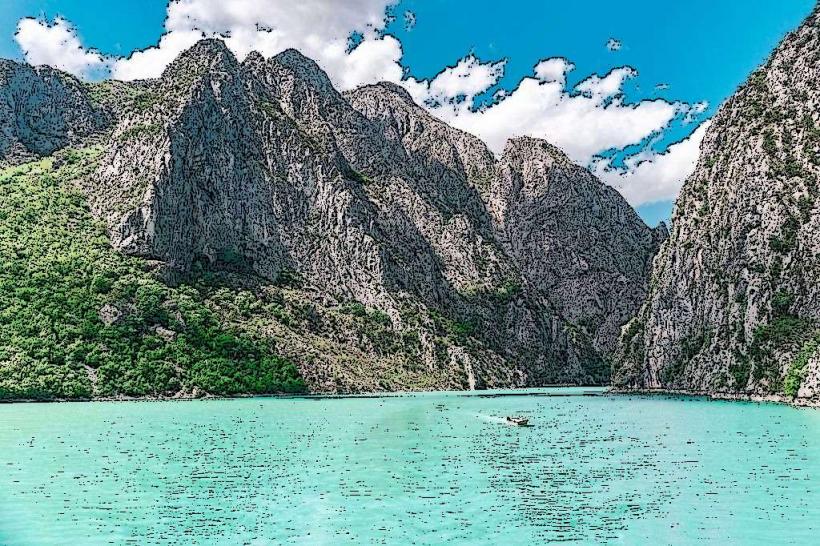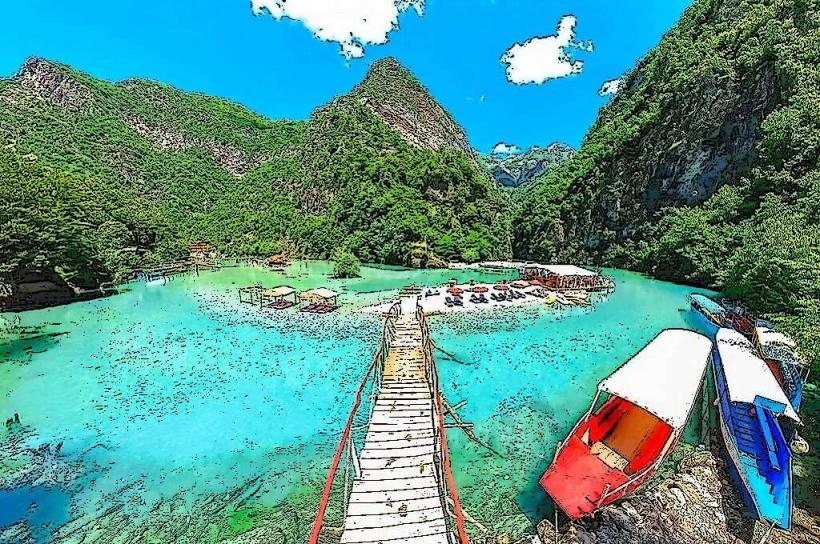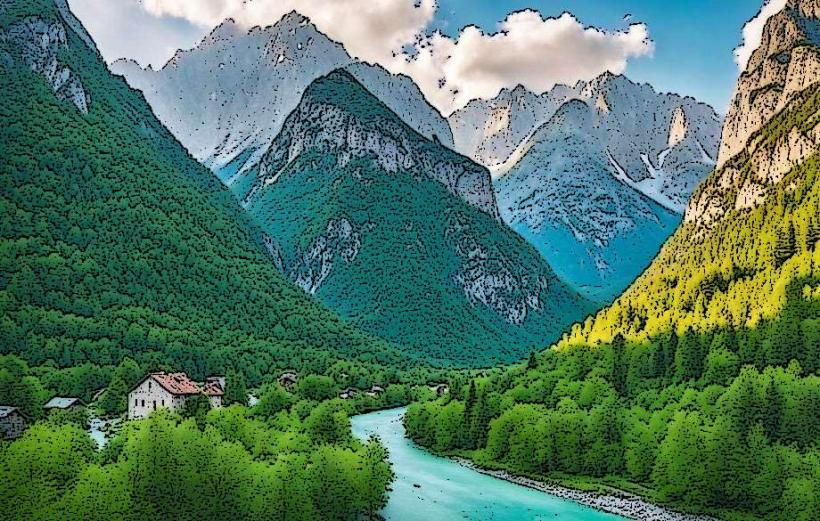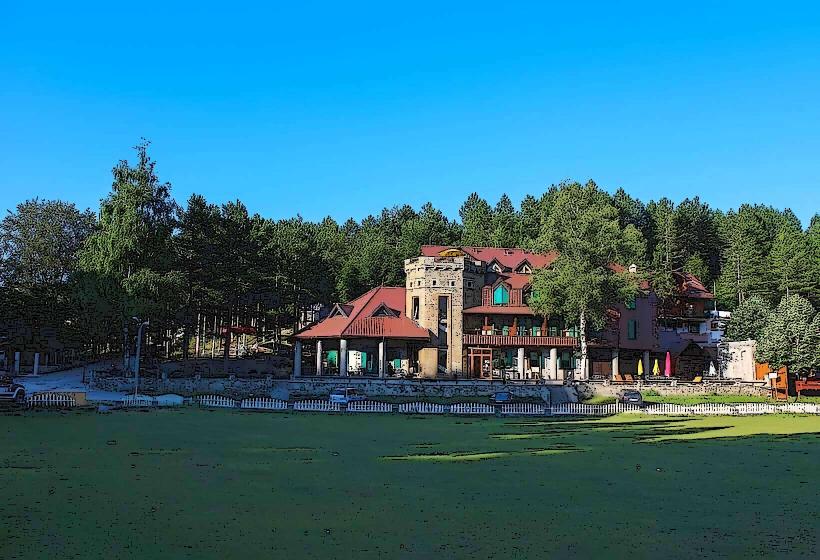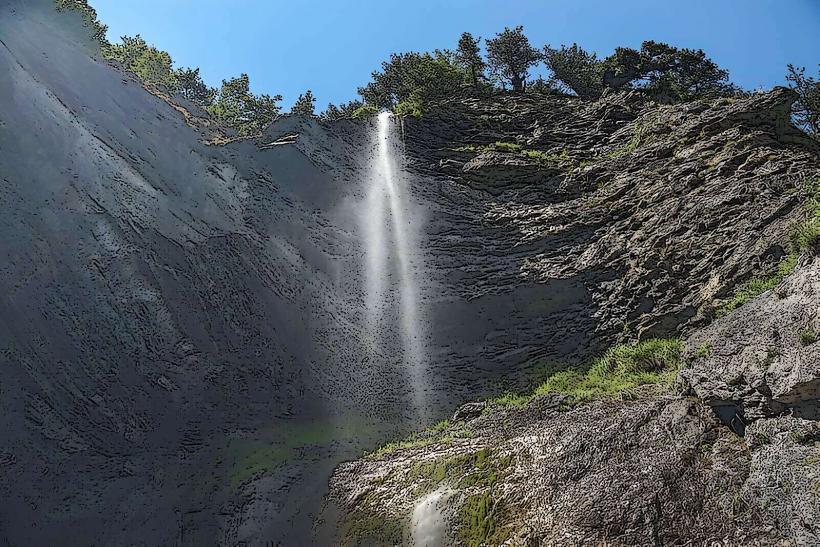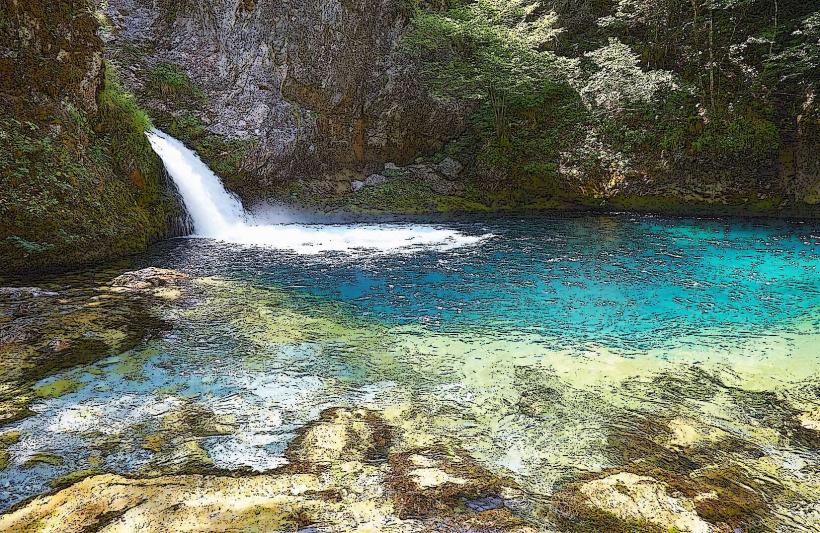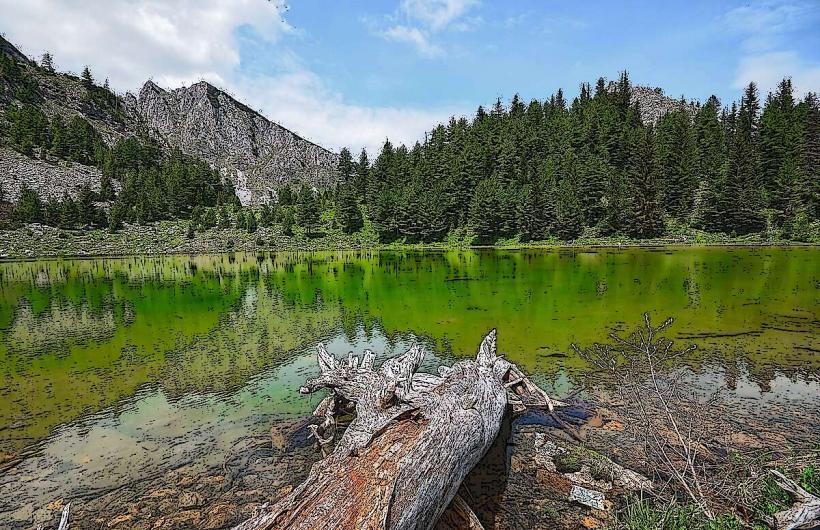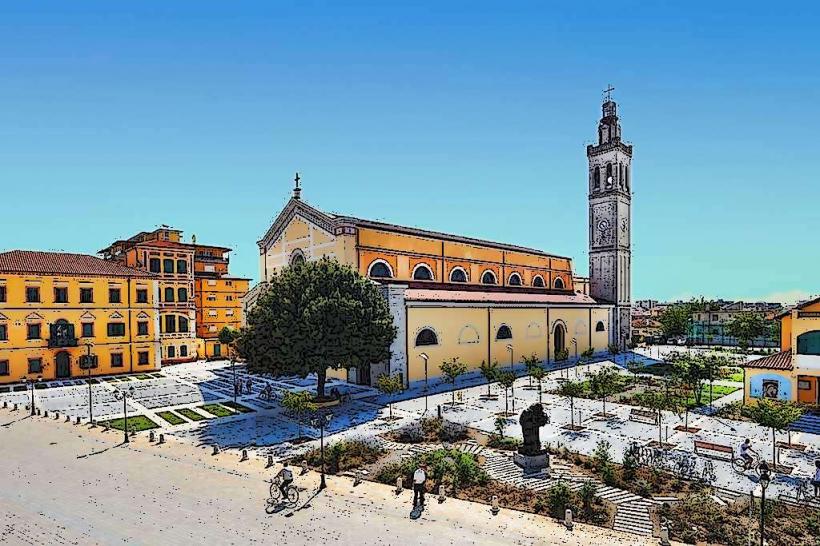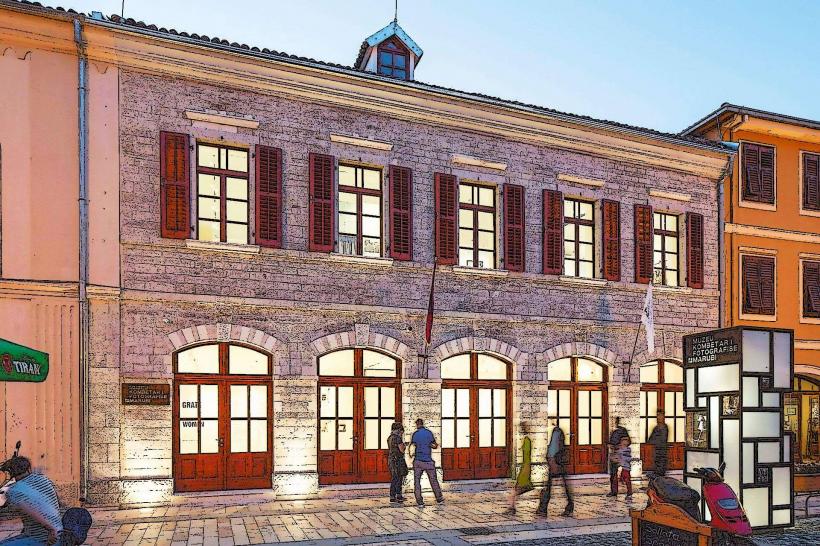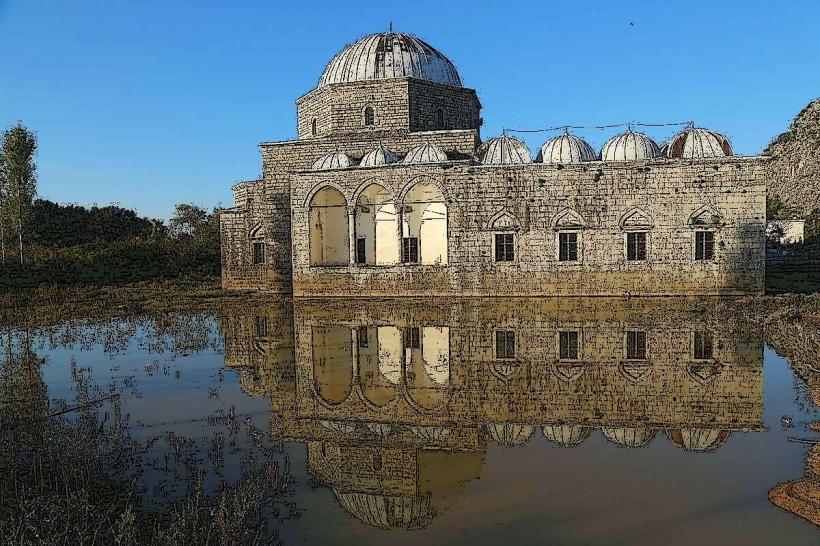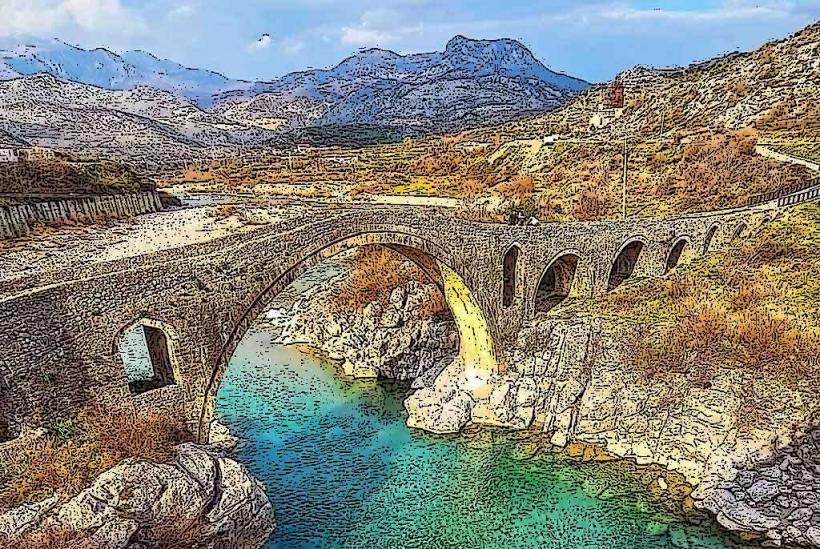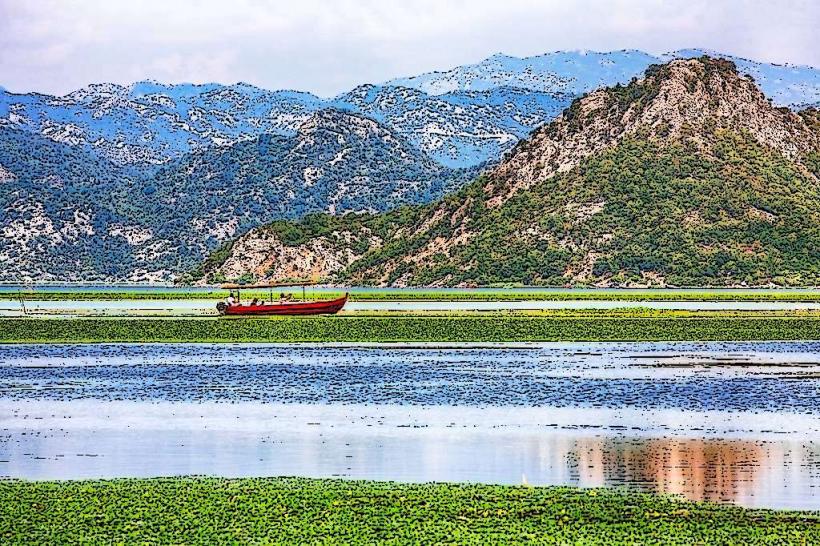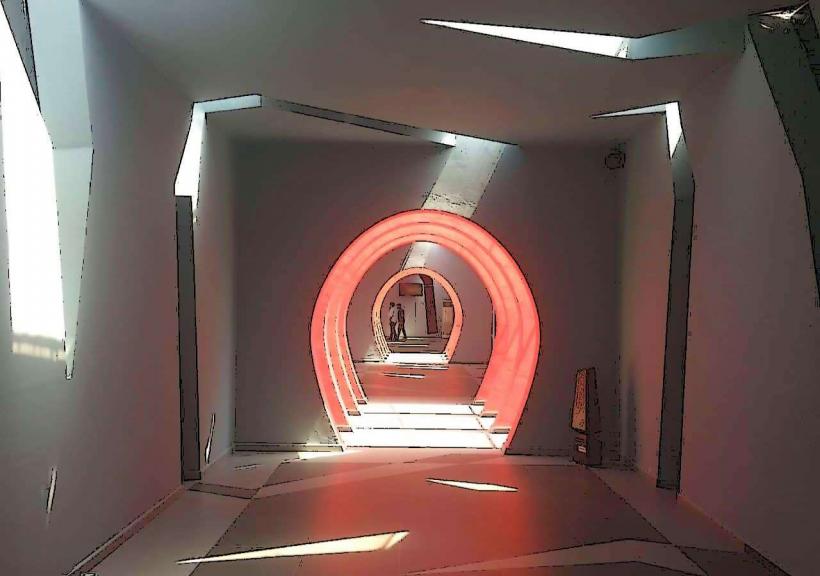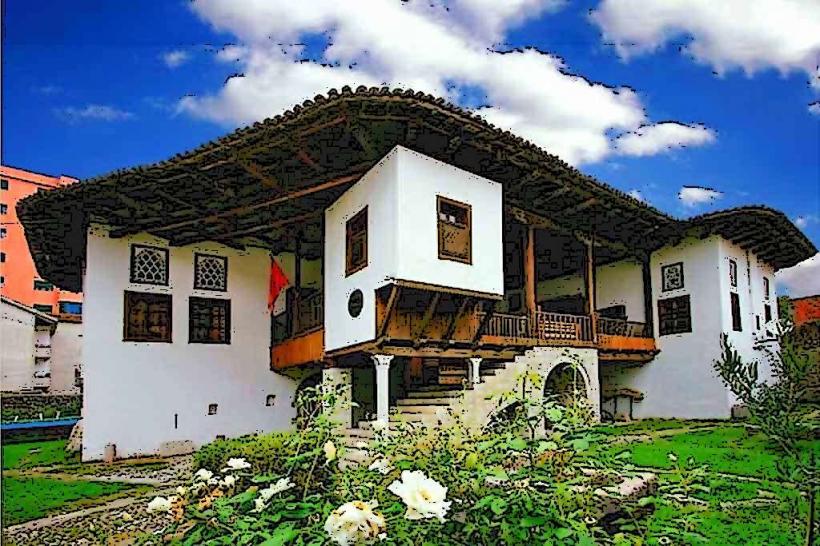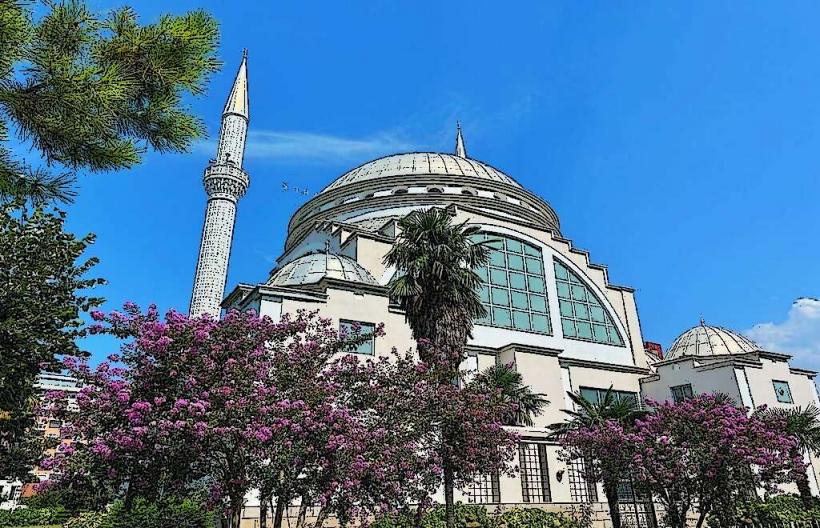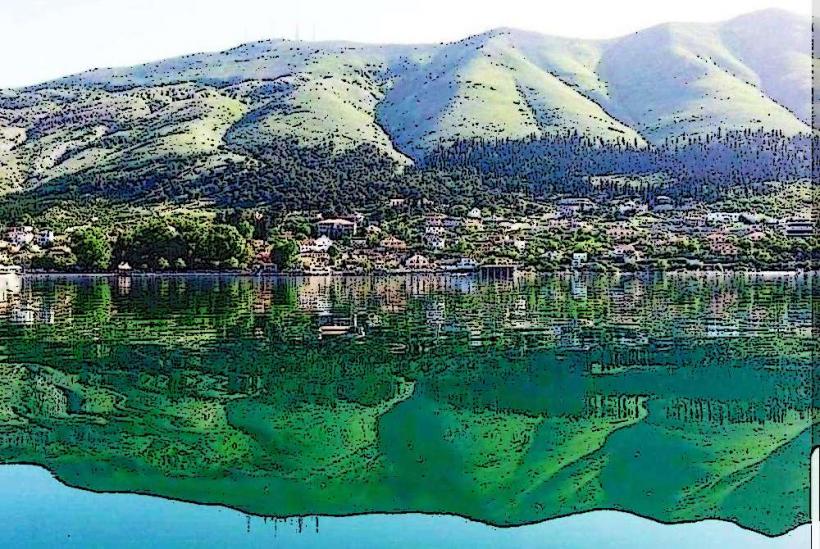Information
Landmark: Rozafa CastleCity: Shkoder
Country: Albania
Continent: Europe
Rozafa Castle, Shkoder, Albania, Europe
Rozafa Castle is an ancient fortification situated on a rocky hill at the confluence of the Buna and Drin rivers, overlooking the city of Shkodër. It represents one of the most significant archaeological and historical sites in Albania, with a continuous history of habitation and military use spanning over two millennia.
Visual Characteristics
The fortress is constructed from massive limestone blocks and occupies a rugged, triangular plateau. The perimeter is defined by nearly 800 meters of curtain walls that incorporate Illyrian, Byzantine, Venetian, and Ottoman masonry. The interior is divided into three successive courtyards separated by internal gates, featuring the ruins of a 13th-century church, a Venetian residence, and several vaulted stone chambers.
Location & Access Logistics
The site is located 3km southwest of Shkodër city center. Access is via the SH1 road, followed by a steep, winding asphalt turnoff leading to the main gate. Public transport includes city buses toward Shiroka or Zogaj, which stop at the base of the hill. A paved but steep pedestrian path requires a 10-minute walk from the parking area to the entrance. Limited parking is available at the castle gate, with larger lots at the hill's base.
Historical & Ecological Origin
The castle was a stronghold of the Illyrian tribe of the Labeates and served as the capital for Queen Teuta and King Gentius in the 3rd and 2nd centuries BC. Most visible ruins date to the Venetian (14th century) and Ottoman (15th–19th centuries) periods. Geologically, the castle sits on a karst limestone outcrop that rises 130 meters above the surrounding floodplains of the Shkodër basin.
Key Highlights & Activities
Visitors can explore the ruins of the St. Stephen's Cathedral, which was later converted into the Fatih Sultan Mehmet Mosque. The Castle Museum, housed in the former Venetian Captain's residence, displays Illyrian coins, Roman weaponry, and Ottoman artifacts. Walking the northern perimeter walls provides views of Shkoder-lake_shkoder" class="underline">Shkodër Lake and the Mirdita mountains.
Infrastructure & Amenities
The facility includes a ticket office and a small museum (separate entry fee). A traditional stone-built restaurant and café operate in the second courtyard. Public restrooms are available near the museum. 5G cellular coverage is consistent at the summit. The terrain is irregular and consists of original stone steps and gravel paths, making it largely inaccessible for wheelchairs.
Best Time to Visit
The castle is open daily from 09:00 to 19:00 (extended in summer). The best time for photography is at sunset, as the western walls overlook the Buna River and the Adriatic horizon. Clear days in winter and spring offer the highest visibility of the Albanian Alps to the north.
Facts & Legends
The castle is famous for the legend of Rozafa, the wife of the youngest of three brothers building the walls, who was immured alive within the structure as a sacrifice to prevent the walls from collapsing. A historical oddity is the presence of the "Teqe" in the third courtyard, reflecting the Bektashi presence within the military garrison during the 18th century.
Nearby Landmarks
Lead Mosque (Xhamia e Plumbit): 0.6km South
Buna River Bridge: 0.8km Southwest
Shkodër Lake (Shoreline): 1.5km West
Mesi Bridge: 8.0km Northeast
Ebu Beker Mosque: 3.2km Northeast

